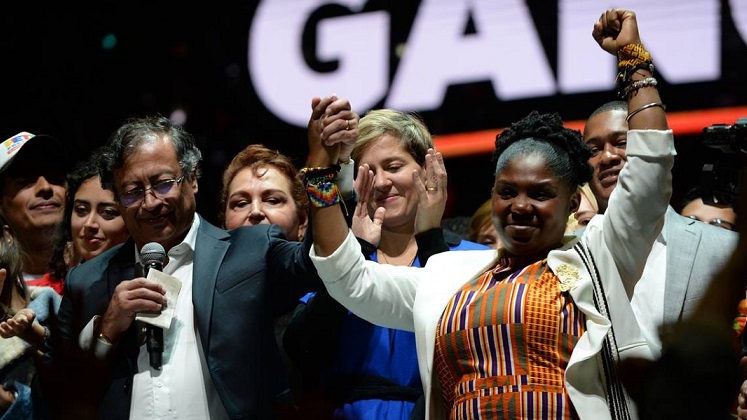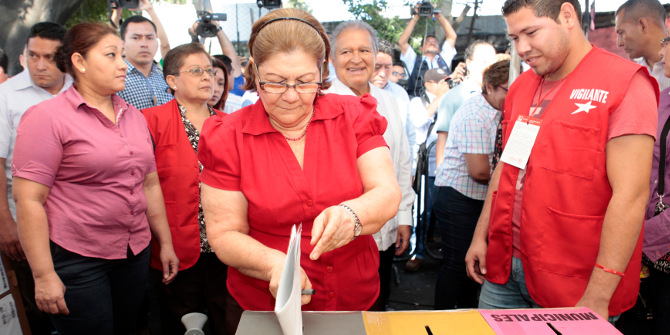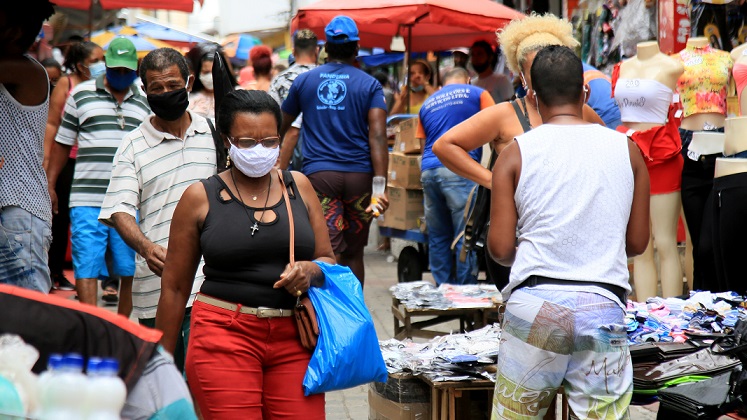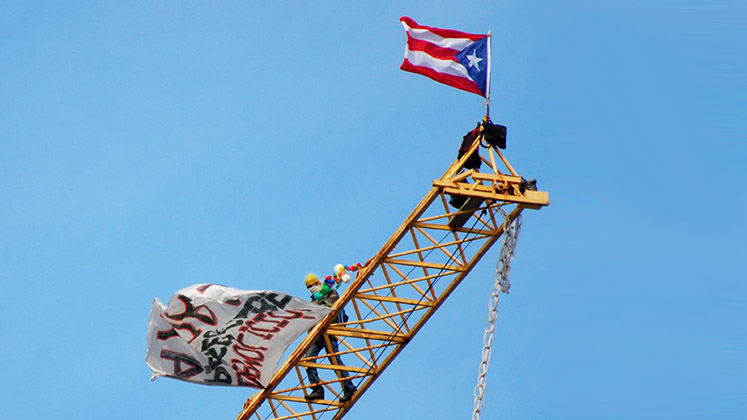 The future of the peace agreement faces many significant risks. Since implementation is a game of confidence building, and compliance and noncompliance alike create snowball effects, mitigation of these risks must be a critical priority for any incoming administration, argues Nelson Camilo Sánchez (National University of Colombia).
The future of the peace agreement faces many significant risks. Since implementation is a game of confidence building, and compliance and noncompliance alike create snowball effects, mitigation of these risks must be a critical priority for any incoming administration, argues Nelson Camilo Sánchez (National University of Colombia).
Lately, Colombians seem to be focused on just two issues: the presidential elections and the World Cup. Both stir hopes and passions, and not for the first time.
Four years ago, the presidential run-off took place the day after a Colombia match at the World Cup in Brazil. According to some commentators, the team’s triumph on the pitch radiated a sense of optimism that clinched reelection for Juan Manuel Santos. His campaign platform at the time was based on a proposal for peace talks with the FARC, then the largest and oldest guerrilla group in the Western Hemisphere.

One World Cup later, Colombia’s presidential elections are once again intimately linked to the question of peace. This time the issues are implementation of the peace agreement with the FARC and the future of talks with the ELN (National Liberation Army), now the country’s only remaining guerrilla group.
The complexities of peace
In September 2016, the Colombian government and the FARC announced a complex and comprehensive peace deal that was applauded by the international community. The agreement adheres to a holistic vision of peacebuilding that incorporates actions across three levels:
- “Negative peace” measures focused on the cessation of conflict and the reintegration of ex-combatants into civilian life
- Actions aimed at the recognition and promotion of victims’ rights and the accountability of those who participated in international crimes
- “Positive peace” measures — policies on access to land, political participation, and citizen inclusion — committed to the eradication of violence based on the construction of conditions for a dignified life in rural areas of Colombia
But international rejoicing has not translated into widespread support for the peace deal amongst Colombians.
This was evident in October 2016, when Colombians were asked to go to the polls on the agreement reached in Havana. With over 60% abstention, 50.2% of voters rejected the peace deal, while the remaining 49.8% voted in favour.
After a precarious period of uncertainty, the government and the FARC assembled critics’ main concerns and renegotiated various points of the peace deal. The new agreement was subsequently approved by Congress, whose endorsement was then upheld by the Constitutional Court.
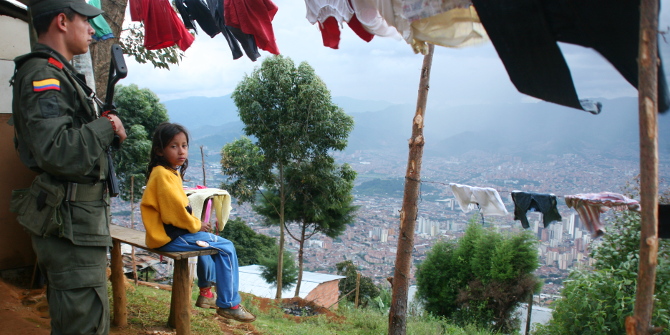
Progress on implementation
Given the ambitious nature of the peace deal, its implementation will undoubtedly be a long and slow process, and it is too soon to gauge the level of compliance with certain aspects that by their nature need time to bear fruit. Nonetheless, independent monitoring exercises have been relatively optimistic about advances so far.
First, with regard to negative peace, the good news is that the conflict has deescalated, with rates of victimisation — not least the homicide rate — dropping dramatically. But unacceptable forms of violence still persist, and the level of violence against human rights defenders and social activists in particular is amongst the worst in the world.
Second, the main accountability mechanisms outlined in the peace agreement are beginning to function (the Truth Commission, the Special Jurisdiction for Peace, and the Search Unit for Missing Persons). Their challenge lies in quickly becoming institutions that victims and society see as impartial, legitimate, and efficient.
Lastly, mechanisms for the construction of positive peace have made the least progress to date. The proposal to increase the political participation of victims and the communities most affected by the conflict was rejected in Congress in an unbecoming political circus. Progress on the issue of land has been halting, and, for now, consensus has been elusive on key aspects, such as the creation of an agrarian jurisdiction.
The future of the peace agreement depends on sustaining the advances made to date and deepening compliance. The risks are many and great, which is why it is critical that the incoming administration make them a priority. In this game of confidence building, noncompliance leads to a snowball effect: if one side perceives that the other is failing to comply, it will do the same, effectively creating a feedback loop. But by the same token, bilateral compliance can create a virtuous circle of implementation.
Peace and the 2018 presidential election
In recent weeks, several developments have put the peace deal in danger by threatening to jeopardise the FARC’s reintegration into civilian life. One of them is the arrest of a FARC commander, who now faces extradition to the United States. Moreover, talks with the ELN are at a critical juncture given Ecuador’s decision to stop playing host following the killing of two journalists and their driver in the border region.
Of the best-placed presidential contenders, only Iván Duque — from the right-wing Democratic Centre party — has announced his intention to radically alter the terms of the agreement. The other candidates have indicated that they will continue moving toward compliance, though not all have used the same language.
Germán Vargas Lleras, the former vice president of the current administration, seems more interested in measures aimed at negative peace and holding the guerrillas accountable than in measures focused on positive peace.
Meanwhile, Sergio Fajardo (of the centrist Green Alliance), Humberto de La Calle (former chief of negotiations in Havana), and leftist candidate Gustavo Petro seem to adhere to a more holistic vision of the peace accord.
Protecting the peace process from the serious risks that it faces will depend less on promises and more on a serious and determined political strategy. Colombians deserve nothing less after having endured so much suffering. In the words of analyst César Rodríguez, “stopping the war was huge, but they promised us they would build peace.”
Notes:
• The views expressed here are of the authors and do not reflect the position of the Centre or of the LSE
• Please read our Comments Policy before commenting


